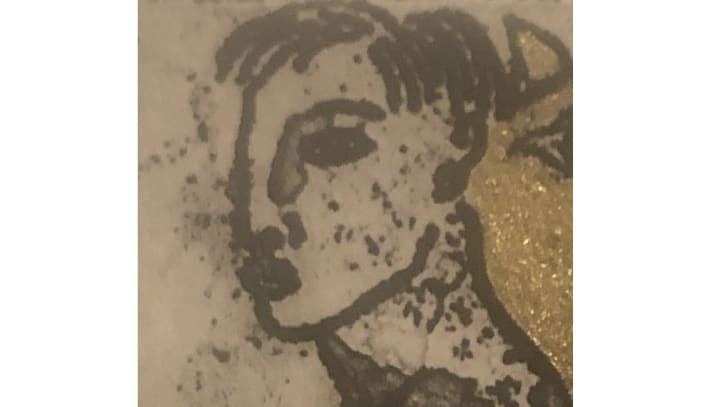Boy girl or not
If a person born a boy later identifies as female why would you want to treat them any other way?

This article is intended as a reflection, a collection of thoughts and some views based on experience. It is also a plea for care, consideration, understanding, 'tolerance' (if you can call it that), if not love. It is a plea to those (like me) with 'binary' understanding of their own sex and gender identity to accept rather than judge. You may already do so and I intend no suggestion that my thinking is in any way special. My thoughts, feelings and opinions are my own, and I make no claim that they are in any way different.
This article was prompted by a request from Mx Stevie Stephen Cole in the Vocal + Assist FB group. I am grateful for the prompt and hope that the effect of my article will be to share a little love where it is much needed
Please feel free to comment with your own views and I will be grateful should you wish to share them. I will not enter into a debate on any of the points you may raise, as I tend to avoid debate in online fora. Such debate online can often degenerate. I hope you will understand. If, however, you feel venom rise at mention of the word 'trans' in the context of sex and gender, please keep it to yourself. I will accept no hate, and implore you to do likewise.
So, the question:
If a person born a boy later identifies as female why would you want to treat them any other way?
One could of course equally read it the other way around but it seems the concern is with a boy becoming, or identifying as, female in whatever way that may manifest itself. Certainly I hear the issue questioned in this way the most, so I will address it in this way. Please feel free to understand the issue from the inverse, the girl identifying as masculine.
These days, trans people (however they may identify) are more visible than at any time I recall in the past 60+ years. Yet it is nothing new, although wider public 'debate' may be. History has made trans people to some extent invisible, just like many black and ethnic minority people have been made invisible in European history. Just like many successful, high achieving women artists, engineers, scientists, campaigners, political leaders, intellectuals and others have become invisible to history. But they have always been there. There are clues, snippets, glimpses that some latter day historians and others are trying to tease out and I hope that this may help to make trans people in history visible once more.
The following article by stand-up comedian and television presenter Susan Calman, speaks to one aspect of this invisibility better than I can.
The point is made even stronger in another intervention by the Tate museums trust in an exceptional 2017 exhibition Queer British Art 1861–1967 at Tate Britain in London. I am a volunteer visitor host at Tate Modern and was delighted to have been joined for a group visit to the exhibition organised through the LGBTQ+ network at the Ministry of Justice in London where I used to work (when not volunteering at Tate). The exhibition provided a unique insight into visibility and invisibility of LGBTQ+ people in the arts and other fields in a bygone age.
What does this all mean? Well, I wanted to illustrate that being queer, gay trans, or however you may identify, is not new. Neither is any controversy around these issues. All that is new is that hate has resurfaced in a way that is fuelled by irresponsible social media and failing politicians and celebrities, clamouring for something to say that will attract attention. In doing so they may harm a now-vulnerable minority.

Regardless of where you may stand on trans issues, gender identity is important to each and every one of us. We each guard our sex, our sexuality and gender identify jealously and may be hurt by assaults upon them. Growing up in the 1960s and 1970s, in a white working class council (social housing) estate, I perceived my place in the world accordingly, and this included sex and gender. It was not long after the post World War II era of austerity and militarism, with all the implications for how boys and young men saw themselves and each other. The world was very much perceived as being a man's world, and one in which men were meant to be (overtly heterosexual, 'manly') men. My own sense of manhood is therefore in part determined by what I have grown to think of as being manly. Having lived to my 60s, I hope that I have a more rounded, sympathetic and perceptive understanding of this feeling of being a man than I might have done as a teenager in the 1970s. But my masculine identity is as important to me now as it was then, and its reference points can be points of sensitivity for me. I will dwell no further on these issues, which are only one man's perception. I mention them merely because they are examples, and we each have our own feelings of self and self-worth. I would challenge anyone, however, to say that their gender identity is NOT important to them.
Looking again at the featured image above, Woman Holding Moon and Man Holding Sun (which were printed separately) you can see what is, in effect, a stereotypical representation of binary gender. This, in 1990 when the prints were made, was how sex and gender were viewed by many people, though doubtless with subtle variations. Today, as a result of increased awareness, there is a common perception that gender, if not sex, can be considered to have a certain fluidity. Just like sexuality. A person might say they are '100% heterosexual' for instance, but I can't see how this can be true. If I were to hear a man say he was "100% straight", it would suggest to me that there was a question mark in his own mind about his sexuality, that may be causing him concern. "The lady does protest too much" perhaps.
Why be prescriptive about gender?
Where does this line of thought lead? Well, in essence, it leads (in my mind) to a view that there is no need, no reason, to be prescriptive about gender. Any more than there is a need to be prescriptive about sexuality, assuming consenting adults. Sadly the issue has become something of a battleground, the victims being trans and queer people everywhere. Such people are in a minority, and a small minority at that. Small enough that political leaders, celebrities and others leaders can spread or allow hate messages without fear of losing too many votes or too much online/social support.
Sometimes the anti-trans messages are direct. Sometimes they are indirectly put, hiding behind a seemingly innocuous statement about making it clearer how sex is defined in law. Or it may hang on the back of an otherwise supportable feminist message. Everyone, it seems, wants to get in on the act. For no reason celebrities pop up with anti-trans, anti-queer messages in their Twitter (now formally known as X ) feed. In many cases they don't particularly care about the message, they just want to make some noise and get noticed and are happy to do so at someone else's expense it seems. I don't care what any particular celebrity says about the issue? What gives them the right to make such public announcements?
I am not going to participate in any such debate, because I don't want to add to the noise and I don't feel the need to justify my opinions. As I said earlier, if you have a view, please feel free to add it in comments. On any finer points I will not be drawn.
My support for the trans community and LGBTQ+ people everywhere is unequivocal. Please let me know if you agree.
I hope nothing in this article causes offence to anyone or seem patronising or pompous. I only wish to express my support and my love.
Share the love!
Thanks for reading
Ray
About the Creator
Raymond G. Taylor
Author based in Kent, England. A writer of fictional short stories in a wide range of genres, he has been a non-fiction writer since the 1980s. Non-fiction subjects include art, history, technology, business, law, and the human condition.
Enjoyed the story? Support the Creator.
Subscribe for free to receive all their stories in your feed. You could also pledge your support or give them a one-off tip, letting them know you appreciate their work.






Comments (4)
Well I may be alone in this but my gender identity is not important to me. Like I don't care what I am. I am me and that's it. As for the gender of others, I don't care either, but in a good way. Like I don't care if they're a male, female, trans or whatever their sexual orientation might be. To me, they're humans and I treat them all the same, with respect.
Great talk. We all just have to live our own lives as we see fit. We have only one Lord and he made us how we are.
This meant so much to me as someone I love very much is transgender and I have many friends, family members also who are part of the LGBTQI+ community. If you get time read my last micro fiction, "Mind Maps". Thanks Ray!
I think this is interesting, Ray. I agree with you these discussions are only considered new because it is in the forefront of our consciousnesses, as it should be instead of kept to the shadows, with shame attached. Why so much hate towards people who are different to you whether it's race, gender, religion? I'm curious about people because I want to connect and understand. Where is that in others? Why is it all about fear? Because I think that's where it stems from. Fear of something other.